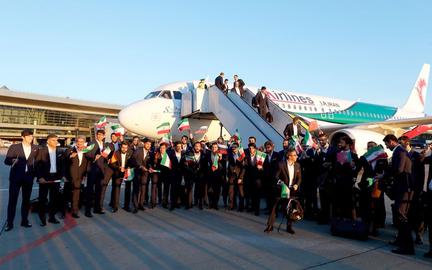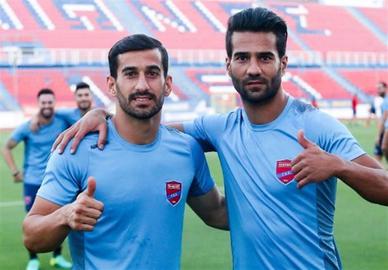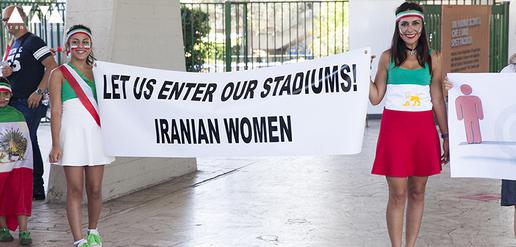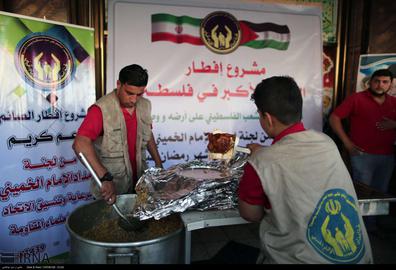This is the latest article in IranWire’s series Decoding Iranian Politics. The series examines the building rift between Iran’s various political factions, goes behind the scenes of the country’s fiercest political scandals and assesses what impact the complex web of government institutions has on Iranian politics today, as well as taking stock of some of the most defining moments in recent history.
What You Need to Know about the Effect of Politics on Iranian football
Football, the most popular sport in Iran, has almost always been overshadowed by political issues. On the eve of the 2018 World Cup in Russia, and following the US withdrawal from the nuclear deal, there have been widespread discussions in Iranian media about politics and the enormous impact it has on football.
The US withdrawal from the deal has put pressure on international companies and banks to cut off ties with Tehran, causing unprecedented consequences for Iranian football.
For instance, just two weeks before the beginning of the World Cup, American company Nike said it would not provide shoes for Iran's national football team because of US sanctions, despite previous talks between the company and Iran.
In addition to this, the prospect of ongoing and upcoming sanctions has made international companies wary of sponsoring Iran’s national team. It has also undermined most of Iran’s football federation’s efforts to organize friendly matches with foreign teams prior to the World Cup.
What Impact Does Ideology Have on Football in Iran?
In Iran, a major part of state involvement in football has its roots in ideology.
The most famous example of ideology having a direct impact is the ban on Iranian women entering stadiums to watch the games. A group of influential clerics is the most dedicated advocates of this ban, and in particular, some Grand Ayatollahs (the marjas), who regard the presence of men and women in stadiums at the same time as being against Islam.
This gender-based discrimination, which is against FIFA’s rules, is one of the reasons Iran has been prevented from hosting international football tournaments. Even when Iranian teams host foreign football teams as part of Asian qualification games, the Islamic Republic authorities face serious difficulties trying to meet FIFA’s standards, specifically with regard to the presence of women in stadiums. In order to meet the criteria, authorities allow a small group of female football fans — mainly supporters of the foreign team playing against Iran — to watch the game, though they are seated in a separate part of the stadium. However, Iranian women are not allowed into football stadiums for these games.
In addition, Iranian state-run TV channels do not usually broadcast the matches of women’s football and futsal teams. This measure deprives such teams from an important source of income, as TV channels do not pay them the fees teams are entitled to when their matches are broadcast. As a result, sponsors have little motivation to support women’s teams since their matches have scarce TV coverage.
The Israel issue presents another ideological obstacle for Iranian football. The Islamic Republic of Iran does not recognize the state of Israel; therefore, Iranian footballers are banned from playing against Israeli teams (as all athletes are banned from competing with any Israeli athlete). Of course, Israel is a member of the Union of European Football Associations (not the Asian Football Confederation, of which Iran is a member) and Israel’s national team has never made it to the World Cup. As a result, Iranian football teams are not normally required to play against Israeli teams. Nonetheless, Iranian footballers who play in European clubs face a complicated situation if their teams play against Israeli clubs: if Iranian footballers do not play, they will face heavy sanctions by FIFA. But if they do play, these players may face serious consequences and punishment from Iranian authorities.
How Does the Iranian Government Interfere in Football?
Iran’s government has often been accused of interfering in football matters. This interference goes against FIFA’s rules, according to which national football federations should remain autonomous from national governments.
In November 2006, FIFA suspended the Iranian federation after Iran’s Physical Education Organization — the head of which was one of the president’s deputies —“removed” the chairman of the federation (The Physical Education Organization became the Ministry of Sports and Youth in 2010). This interference took place because the government was not happy with the performance of Iran’s national team in the 2006 Word Cup. However, this ban was lifted in December 2006, when the Iranian government declared its commitment to not interfere in football affairs.
Iran’s football federation was also on the verge of suspension in August 2018, when the Ministry of Sports and Youth announced that two Iranian footballers would not be invited to play for Iran’s national team, as they had crossed the Islamic Republic's “red lines” when they played against an Israeli club. The two players, Masoud Shojaei and Ehsan Hajsafi, were harshly criticized by Iranian hardliners after they played as part of the Greek club Panionios in a Europa League qualifier against Maccabi Tel Aviv. After the Ministry of Sports and Youth's announcement, FIFA demanded explanation from Iran over this decision. Several media outlets broadcast news that Iran would be suspended over the matter.
But Iran’s football federation, which was concerned by the prospect of being penalized on the eve of the 2018 World Cup, did not ban the two players, and both were eventually invited to play for Iran’s national team.
What Impact do Military Authorities Have on Iranian Football?
The influential affiliates of Iran’s military forces also impact on Iran’s football in different ways.
For instance, the directors of at least 10 Iranian football clubs are current or former commanders of the military forces – in particular, the Islamic Revolution Guards Corps (IRGC). They occupy these positions because of their considerable financial and lobbying powers, which are rooted in their connections to the IRGC.
The forces affiliated to the military institutions may impact football in indirect ways, too. An example of such indirect impact made headlines in January 2016, when a group of Basij members attacked Saudi Arabia’s embassy in Tehran. Basij is a large paramilitary organization affiliated to the IRGC.
This attack led to a break up in diplomatic relations between the two countries — and to the Saudi officials’ decision to stop sending their football teams to Tehran to play Iranian teams. Saudi officials say the security of its footballers would be at risk in Iran, and this argument has been backed by the Asian Football Confederation.
Saudi Arabia and Iran are two major football powers in Asia and their teams must play one another in a range of Asian qualification matches. Iranian teams, however, have been deprived of encounters with Saudi teams in Tehran since January 2016. The two teams have been obliged to play in third-party countries.
This obligation has harmed Iranian teams much more than the Saudis, as the number of Iranian football fans who travel to stadiums to cheer on their teams is far greater than Saudi fans.
visit the accountability section
In this section of Iran Wire, you can contact the officials and launch your campaign for various problems



























comments